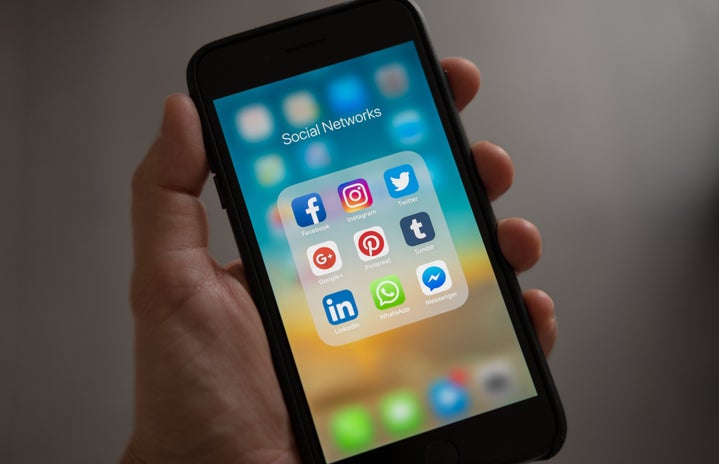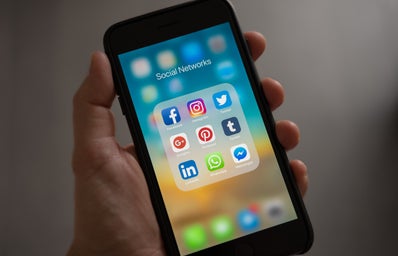While initially, the role of social media was to connect people across the world, build interpersonal relationships and share experiences, it has now become an online hub to address social issues, spread awareness, campaign against injustices, and fight for a cause.
The term used for this form of protest or advocacy for a social cause that uses online media channels is ‘social activism’. Social Activism is characterized by promoting a certain set of ideas to spread awareness, demonstrate solidarity through hashtags, illustrations, vlogs, pictures, and threads.
This strange phase of quarantine has alienated us from the outside world. We now live in an online world which we have created for ourselves in these past few months. Owing to this phenomenal wave of activism through social media, people are choosing to vocalize their opinions and withdrawing from acts of mutation and apoliticism. Whether it’s about standing for #BlackLivesMatter or #DalitLivesMatter, people are effectively using their freedom of speech & expression to expose the shortcomings in the man-made patriarchal system of society, and fascist structures that pose a threat to the concepts of federalism, sovereignty, secularism & democracy.
The recent, unlawful arrest of student protestor, Umar Khalid along with hundreds of others, has triggered the sentiments of uncountable students who flooded social platforms with posters and statements to express their dissent, resistance, and disappointment towards the perceived unjust practices of the central and state governments by wrongly exercising their authority to silence all those who dared to speak against their propagandas.
Apart from the political aspects of social activism, users are also breaking stigmas and taboos when it comes to speaking about mental health, body positivity, the art/culture/history of the LGBTQIA+ community, menstrual health, rape culture, abortion laws, so on and forth.
A while ago, there was a massive ripple of environmental & wildlife campaigns which included shaming multinational fashion brands like Louis Vuitton for exploiting animals to make a profitable business out of it. The social addressal was so huge that the brands suffered massive financial losses due to an exorbitant decrease in sales. Prominent, pragmatic political leaders like Ms. Kavitha Reddy, have publicly issued apologies for their misbehavior after hashtags, posts and stories of their inappropriate conduct went viral on social media. More recently, the UP police have issued an official statement within 22 hours, taking complete accountability and responsibility for mishandling Ms. Priyanka Gandhi during the Hathras protests, after they were highly criticized on social media for mistreating a woman political leader merely dissenting against the opposition.
Once something goes viral, people stand up for it with a force that can neither be regulated nor molded. After online awareness drives about body positivity & mental health were articulated, apparel outlets like Calvin Klein and Adidas issued their latest magazine covers featuring their collection by hiring plus size, black women as the face of their campaigns. Such is the power vested in social media activism. Globally, there are 3 billion+ social media users currently. Some activists coerce people to speak up, and sometimes, that coercion takes dangerous turns, like bullying. While I agree that being apolitical is an explicit depiction of unearned privilege, I also stand with the fact that with so much going around in the world, and so many people sharing their opinions concurrently, it can get difficult to keep track.
What we need to accept as an online society is that not everyone can find the right words, and expressions to be vocal/opinionated about volatile issues. In some instances, people might need time to process the information while for others the issue can be triggering on certain levels. Most importantly, they might not have the mindset or relevant information to speak about the issue at hand and find it difficult to expose themselves on social media pertaining to their mental/emotional state. There is a large set of social media users who suffer from social anxiety and who cannot come out on online platforms to speak freely like an activist. It doesn’t necessarily imply that they do not care about what’s happening around them; at times, it simply means that their well-being does not work in accordance with being socially active.
When we shame people for being apolitical or not speaking about issues like mental health on social media, we’re unknowingly deteriorating their mental well- being and contradicting our own agenda.
I am unsure how to begin, but I want to play an active role as a social activist and fight for what matters. How can I start?
- Firstly, you need to figure out if you actually want to join the activism or you just want to be able to fit in i.e. if it’s peer pressure that’s forcing you to be a social activist. If it is the latter, then you need to know that coerced/bogus social activism is as looked down upon as apoliticism. If you’re not comfortable with sharing your thoughts at your discretion, then it is perfectly fine to not do so. It really is.
- Research about the information before putting it out for others to see. You need to realize that you have a social responsibility that you cannot misuse. If you spread misleading facts without properly processing all its aspects, you’re sending out the wrong message for hundreds of others to take reference from.
- It is okay to have opinions that are different from others. Social media conflicts are perfectly alright as long as your facts are correct.
- Be sensitive to the people/issues you’re addressing in your information. Using inappropriate slangs, prejudices and phrases might hurt the religious or cultural sentiments of certain communities.
- If you make a mistake, or pass on an incorrect message, don’t be afraid to take responsibility for it.
Recently, the video of an 80-year-old couple who owned ‘Baba ka Dhaba’ in Malviya Nagar, New Delhi went viral on social media. The helpless, old couple could not sustain the financial crunch due to the lockdown. The couple is smiling now, their story has reached thousands of Indians who are helping them today.
Social media activism is a virtue for those who know how to use it. Use your privilege to bring a smile to someone’s face. Be someone’s sunshine on a cloudy day!


